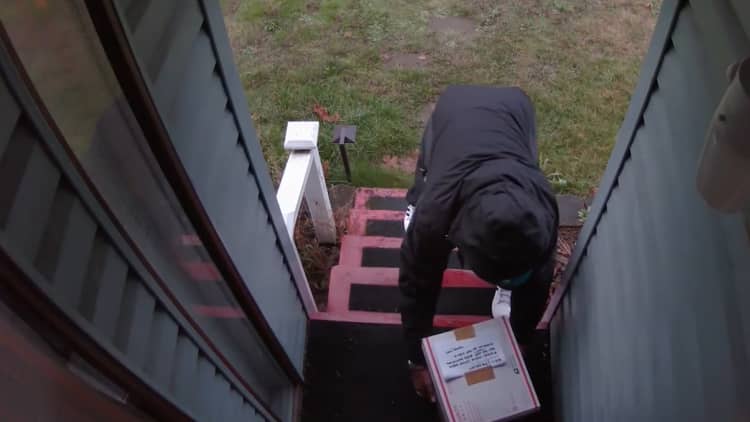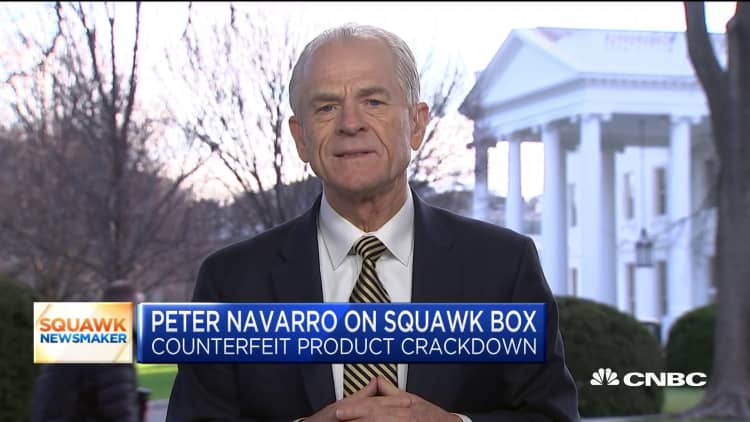Popular phone accessory maker PopSockets accused Amazon of "strong-arming" it and failing to remove fake products.
David Barnett, CEO of PopSockets, testified during a House Judiciary antitrust subcommittee hearing on competition in the digital economy in Colorado on Friday.
Barnett said Amazon pressured PopSockets to lower the price of its products on the platform and said if it failed to do so, the company would source product from the "gray market," or third-party sellers. PopSockets sells grips that attach to the back of cellphones.
"One of the strangest relationships I've had with a retailer is with Amazon," Barnett said. "The agreement appears to be negotiated in good faith, but what happens is there are phone calls where we get bullying with a smile."
An Amazon spokesperson told CNBC in a statement that the company sought to continue working with PopSockets to provide "competitive prices, availability, broad selection and fast delivery" for those products to its customers.
"Like any brand, however, PopSockets is free to choose which retailers it supplies and chose to stop selling directly through Amazon," the spokesperson said. "Even so, we've continued to work with PopSockets to address our shared concerns about counterfeit, and continue to have a relationship with PopSockets through Merch by Amazon, which enables other sellers to create customized PopSockets for sale."
Barnett said Amazon uses a variety of tactics to "bully" businesses, such as threatening to send excess inventory back at a cost to the company. He also disputed Amazon's argument that there are other online marketplaces for businesses to sell their goods.

"We sell on the Walmart platform, sales are 1/38th of the sales we had on Amazon when we had a relationship," Barnett said. "And Target it's even less. These are small fractions."
PopSockets is just one of many brands that have publicly expressed their dissatisfaction with selling products on Amazon's marketplace. In 2018, PopSockets attempted to stop selling directly with Amazon, citing the aggressive pricing atmosphere and other controlling tactics, such as not allowing PopSockets to sell its products through a distributor. Barnett said PopSockets is now "testing" a direct selling relationship with Amazon.
Amazon said it requires some popular, widely available brands to sell to it directly to guarantee it's offering the lowest prices compared with those offered at other stores.
The marketplace has become increasingly crucial to Amazon's business and is made up of millions of third-party merchants who distribute products across many categories. It now accounts for more than half of Amazon's overall sales on the platform.
Amazon also sells counterfeit, unsafe and even expired goods. During the hearing, Barnett said there were "enormous amounts of fake products" on Amazon, enough that PopSockets was finding 1,000 counterfeits each day.
"It really harmed our brand," Barnett said.
While Amazon says it has a "zero tolerance" policy for copycat products and has developed tools to help manage the problem, its marketplace continues to be plagued by pirated goods. The problem has grown so severe that advocacy groups have called for some Amazon sites to be added to the U.S. government's annual "Notorious Markets" list, which names sites and companies that facilitate the sale of counterfeit goods.
Earlier this week, President Donald Trump and China signed a new trade agreement that includes a provision to stanch the sale of counterfeit goods on e-commerce platforms such as Amazon.
Follow @CNBCtech on Twitter for the latest tech industry news.



